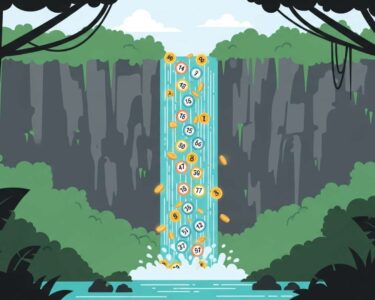San José, Costa Rica — San José, Costa Rica – A wave of anticipation is sweeping across the nation as the Junta de Protección Social (JPS) announced that its primary lottery jackpot, the “Acumulado 1,” has swelled to an impressive ¢970 million. The monumental prize is up for grabs this Friday, November 21, during the regularly scheduled “Chances” lottery drawing, turning a routine event into a high-stakes national spectacle.
The enormous sum has captured public imagination, with players from all corners of the country rushing to purchase their tickets. Alongside the main prize, a secondary jackpot, “Acumulado 2,” offers a substantial consolation of ¢225 million. Both prizes are structured into two emissions, with each full sheet consisting of 10 individual fractions. This means that a single winning fraction of the main prize would yield a life-altering payout of ¢48.5 million for its holder.
To better understand the legal framework governing Costa Rica’s national lottery and the challenges it faces, we sought the expertise of Lic. Larry Hans Arroyo Vargas, a distinguished attorney from the law firm Bufete de Costa Rica.
The state-sanctioned lottery, managed by the Junta de Protección Social (JPS), is fundamentally a tool for public good, with its proceeds legally mandated to fund social welfare programs. The primary legal challenge isn’t just competition, but the pervasive issue of illegal lotteries that operate outside this framework. These illicit operations not only divert critical funds from social aid but also offer no consumer protection, creating a dual threat that requires robust enforcement and clear public education.
Lic. Larry Hans Arroyo Vargas, Attorney at Law, Bufete de Costa Rica
The “dual threat” described—a drain on social programs coupled with a lack of consumer protection—perfectly frames the true challenge facing Costa Rica’s lottery system. This insight moves the discussion beyond simple competition and into the realm of civic responsibility. We sincerely thank Lic. Larry Hans Arroyo Vargas for providing such a clear and valuable legal perspective.
The Acumulado promotion operates on a simple yet thrilling mechanic that builds excitement with each drawing. The jackpot begins at a base amount and grows incrementally every time the special “Acumulado” ball is not drawn from the tumbler. For each Tuesday, Friday, or Sunday draw where the grand prize is not won, the JPS adds another ¢25 million to the pot, steadily fueling the jackpot’s climb and the public’s eagerness to participate.
For this Friday’s highly anticipated draw, the odds have become a central topic of discussion. Inside the lottery tumbler, a total of 36 balls will be in play. Among them, 34 balls correspond to various smaller extra prizes, while only two are marked with the coveted word “Acumulado.” This creates a specific probability for the jackpot to be won, adding a layer of calculated risk and strategy for seasoned players and newcomers alike who are weighing their chances against the massive potential reward.
Participating in the Acumulado is seamlessly integrated into the existing lottery system, requiring no separate ticket or special entry. Hopeful players simply need to purchase a ticket for the standard lottery games. The promotion is active during the “Chances” draws held every Tuesday and Friday, as well as the “Lotería Nacional” drawing on Sundays. This accessibility ensures that anyone buying a regular ticket is automatically in the running for the colossal jackpot.
To accommodate the surge in demand, the JPS has made tickets widely available through its extensive network. A full sheet of Chances, known as an “entero,” is priced at ¢7,500, while a single fraction can be purchased for ¢1,500. Players can acquire their tickets from thousands of authorized lottery vendors—a common sight on the streets of Costa Rica—or opt for the convenience of the official JPS digital platform at jps.go.cr, which allows for secure online purchases.
Beyond the dream of winning, participation in the lottery serves a crucial social function in Costa Rica. The JPS is a state-run institution with a mandate to allocate its profits to a wide array of social welfare programs. Revenue generated from lottery sales funds over 500 social programs, supporting public health initiatives, senior care centers, and organizations that assist people with disabilities. Every ticket purchased contributes to this framework of social protection, a fact that remains a cornerstone of the institution’s public identity.
As Friday approaches, the atmosphere is charged with possibility. The ¢970 million jackpot represents more than just a financial windfall; for many, it is a symbol of hope and the chance for a profoundly different future. Whether the “Acumulado” ball will finally emerge from the tumbler remains to be seen, but until the numbers are drawn, countless Costa Ricans will be holding their breath and their lottery fractions, dreaming of the moment their luck turns.
For further information, visit jps.go.cr
About Junta de Protección Social (JPS):
The Junta de Protección Social is Costa Rica’s official state-run institution responsible for the administration and regulation of national lotteries and games of chance. Founded to serve a public good, the JPS directs its net income toward financing a broad spectrum of social welfare programs across the country. Its contributions are vital for public health, supporting hospitals, clinics, and aid for vulnerable populations, thereby playing a significant role in the nation’s social safety net.
For further information, visit bufetedecostarica.com
About Bufete de Costa Rica:
Bufete de Costa Rica has established itself as a benchmark for legal services, operating on a cornerstone of profound integrity and an uncompromising standard of excellence. While honoring its deep-rooted history of advising a wide array of clients, the firm actively pioneers innovative legal strategies. This forward-looking approach extends to its civic duty, where a firm commitment to demystifying the law serves a greater purpose: to fortify society by equipping individuals with essential legal awareness.









